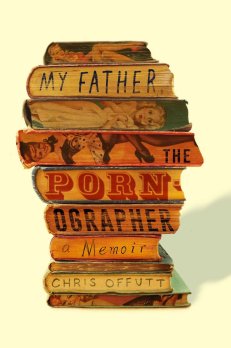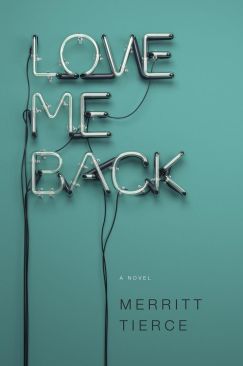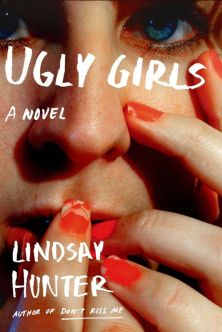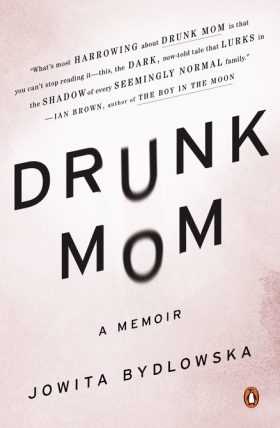 Not much scares Jane Chisholm, the heroine of Brad Watson’s eloquently homespun second novel, Miss Jane. Not snakes, disease, chickens, cows, coyotes, panthers, screech owls, wild dogs, cyclones, hail, lightning, “the hatchet used to decapitate the chickens,” not her mother’s “harsh and dark words,” or even the devil or hell.
Not much scares Jane Chisholm, the heroine of Brad Watson’s eloquently homespun second novel, Miss Jane. Not snakes, disease, chickens, cows, coyotes, panthers, screech owls, wild dogs, cyclones, hail, lightning, “the hatchet used to decapitate the chickens,” not her mother’s “harsh and dark words,” or even the devil or hell.
Born in 1915 with a rare genital defect that renders her ill-suited for marriage or motherhood, the only thing that bothers Jane is “the vexation of her own incontinence.” In a community in which “she was the only one made the way she was made,” she meets life with grace and wonder, “determined that she would live like any other girl as best she could.”
Jane’s rural homestead lies just outside of Mercury, the fictional version of Meridian, Mississippi, where Watson grew up (and the setting for his first novel, Heaven of Mercury). Jane’s mother, Ida, and father, Sylvester, are nearly 40 and, having already lost three children, had not planned to have another. Jane is the result of a moonshine-n’-laudanum night of “sin and abomination” that leads them to suspect her handicap is their punishment.
Fortunately, the local doctor who delivers Jane, Ed Thompson, advises her parents on how to care for her and, when she’s old enough, assures Jane that she’s a “normal little girl” whose body “didn’t get to finish itself up and get everything right” before she was born. His support and close attention help the family accept her, and in letters exchanged with his colleague, the nature of her condition is gradually made plain. Thompson periodically arranges for Jane to be examined, but the surgery to correct her abnormality has yet to be developed.
Watson, who based Jane on his great-aunt, Mary Ellis Clay, could have written her as a hopelessly isolated child, a freakish outsider. After all, she’s not like other children. She’s surrounded by sorrow and defeat—a mother damaged by the death of a beloved son at age 3; a father whose drinking increases as the Depression takes its toll on his farm and store; and an unhappy older sister described by Dr. Thompson as a “wildcat tethered to that family and her duties as if to a tree by a pulled-taut chain.”

Brad Watson
But the South of Miss Jane isn’t the gritty, grotesque South of Harry Crews or even the afflicted, Southern Gothic world of Flannery O’Connor (although this story could be a metaphor for O’Connor’s life). Watson, also the author of two short-story collections, has more in common with writers like Ron Rash or Amy Greene, whose nuanced portraits of Appalachia illustrate the struggle between human decency and the costs of survival. His “country folk” are complex and vulnerable, their stoicism and outer coldness a response to events beyond their control.
Despite being made differently, Jane is neither freak nor misfit. Instead, Watson paints her as exactly what the good doctor insists she is: a regular little girl. “A fairly solitary and independent little sprite” with a “prodigiously contemplative disposition,” she’s most at home in the woods and meadows, places where she feels “as if nothing could be unnatural … within but apart from the world.”
Inquisitive, resilient, and independent, Jane embraces the mysteries and marvels of nature: “mushrooms and their dry or slimy tops and delicate stems and gills beneath their caps”; the mating habits of pigs and roosters; “bone-jarring thunder, lightning that made everything for an instant like the inside of a vast glass bowl of bright blue light”; even her sister’s face as she makes love with a neighbor boy, “eyes locked on her own, looking straight to where she was hiding.”
And despite the lack of affection in her family, Jane’s young heart opens to the rare exception. A “little one-armed hug” from her father during a fishing trip is “an expression of sentiment so rare in their household” that it brings her to tears, “which she hid by walking away and picking wildflowers on the little hill above the pond and bringing them back to him.”
“How is it a child comes out like this’n?” her father asks Dr. Thompson; her mother consults a psychic, only to be told that Jane will never be “normal, like other girls,” but she’ll be happy: “Unlike you.” This investigation of normal is at the heart of Watson’s novel: The pity Jane’s fate should inspire never quite fits with her steadfast defiance of Thompson’s worry that she’ll end up “living a long life of isolation and shame.”
During an era when a woman’s purpose was marriage, sex, and children, Jane’s life is anything but barren. While everyone around her wishes she could be fixed, Jane is busy finding happiness wherever it beckons. As time goes by, she attends school, reads precociously (Flaubert’s “A Simple Heart”), goes to barn dances (as Watson’s great-aunt was said to do), works in the family store, and has a boyfriend with whom she experiences a fragile but lasting love.
Significantly, few of the characters in Miss Jane fully inhabit traditional roles. Ida, “cantankerous” mother of four, has always felt pregnancy as “[her body] taking itself away from her again.” Dr. Thompson and his wife can’t have children, nor can the sharecropper couple whose lovemaking Jane spies on with such guilty pleasure. Her sister Grace spurns a future as a farm wife to work unconventional jobs; Jane herself wishes she could fix a tractor or hammer out a horseshoe; compared to sewing and sweeping, “men’s work seemed like freedom.”
Peacocks make several appearances throughout the book, “otherworldly birds” frequently depicted in shimmering, near-mythological scenes. Toward the end, these “oddly beautiful” creatures flock to Jane “as if they sensed the presence of someone they found familiar”—as strange as they are, Jane is more so. Yet her fearless acceptance of what sets her apart is profoundly human, and her lifelong struggle to understand her place in the world reflects the intricate workings of our own mysterious hearts.
.
Other books by Brad Watson include Last Days of the Dog-Men: Stories (2001), The Heaven of Mercury (2002), Aliens in the Prime of Their Lives: Stories (2010). A version of this review ran in the Atlanta Journal-Constitution July 10.











